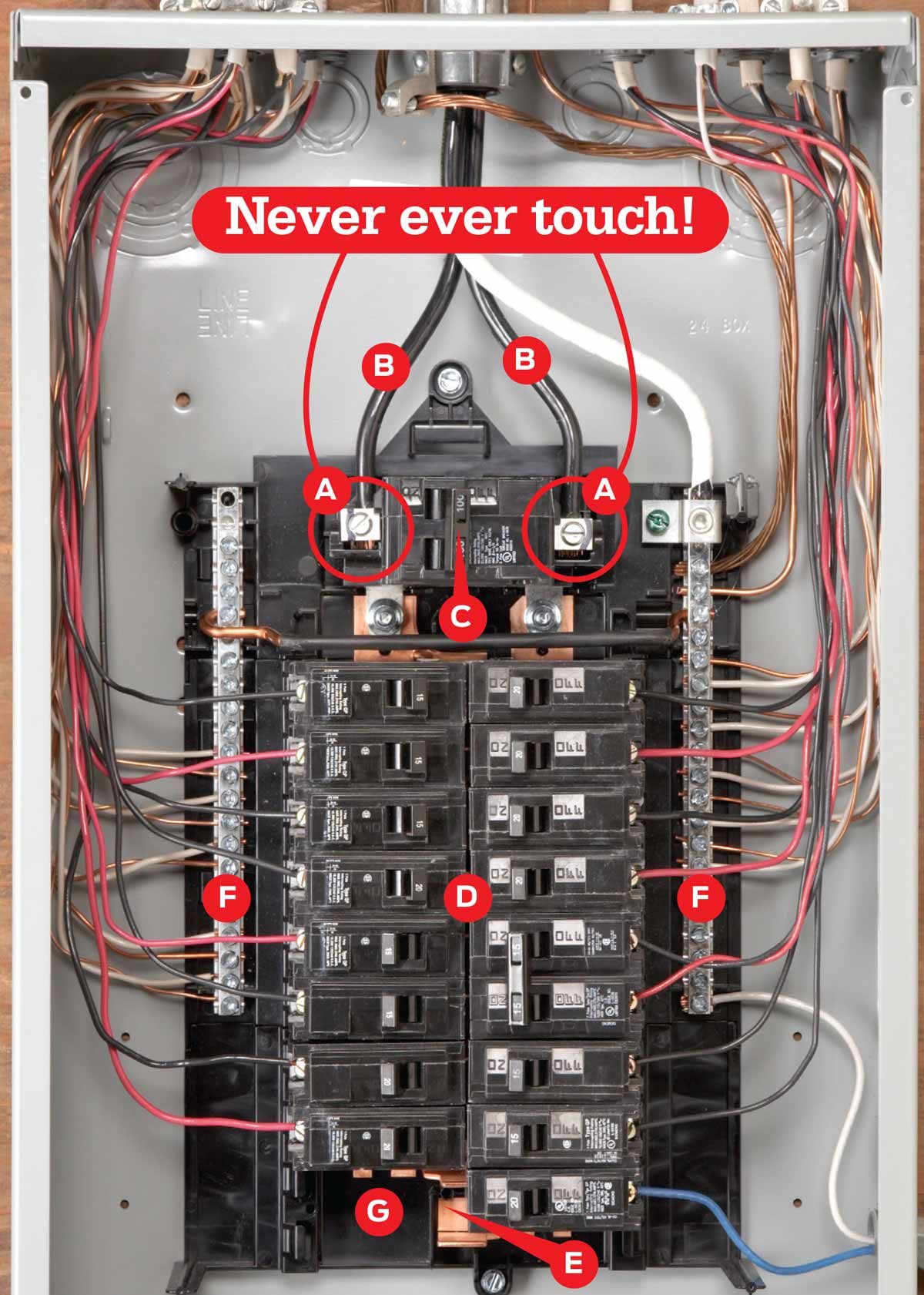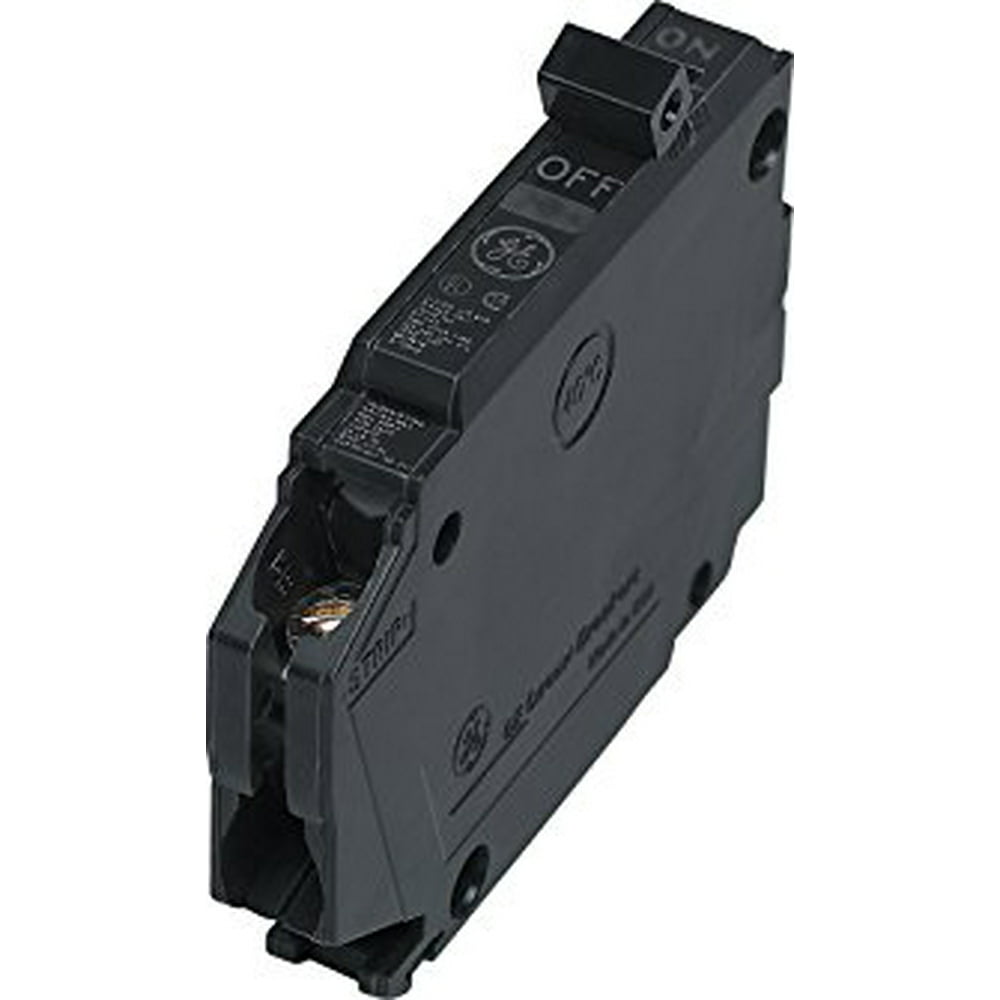Best Of The Best Info About Can I Use A 25 Amp Breaker Instead Of 20

How To Wire A Circuit Breaker House Wiring, Electrical Home
Understanding Breakers
1. The Basics of Circuit Breakers
Let's talk circuit breakers. Think of them as the unsung heroes of your home's electrical system, the guardians preventing fiery chaos. They're designed to trip, or switch off, when the electrical current flowing through a circuit exceeds a safe level. This "safe level" is what that amp rating on the breaker indicates. A 20-amp breaker, for instance, is designed to handle 20 amps of current before it shuts things down. Exceed that, and poof — darkness. It's a safety measure to prevent wires from overheating and potentially starting a fire. It is very important to understand it clearly to avoid any incident.
Each circuit breaker is rated to protect the size of wire in that circuit. Using the correct breaker is very important for safety reason. This is why we need to understand circuit breakers.
Now, when you're faced with an electrical issue, the temptation to "upgrade" a breaker might arise. Maybe you're tired of your hairdryer constantly tripping the breaker in the bathroom. But hold on! Changing a breaker isn't like changing a lightbulb. It involves a whole lot more, and messing it up can have serious consequences. So before you even think about swapping that 20-amp breaker for a 25-amp one, let's dive into what that actually means.
Think of it like this: Your electrical system is like a series of pipes carrying water. The pipes (wires) are sized to handle a certain flow (current). The breaker is the valve that shuts off the water if the flow gets too high. Trying to force more water through a smaller pipe is a recipe for disaster, and the same goes for electricity.

The Big Question
2. The Short Answer (and Why It Matters)
The short answer is generally, no. And here's the thing: it's not just a suggestion; it's an electrical code and safety issue. The 20-amp breaker is there for a reason. It's protecting the wire that's connected to that circuit. If the wire is rated for 20 amps, then that's the maximum amount of current you should allow to flow through it. This is very crucial.
Now, if you slap in a 25-amp breaker, you're essentially telling the electrical system, "Hey, it's okay to send more current through this wire." But the wire hasn't magically gotten thicker! It's still the same wire, rated for 20 amps. What happens then? The wire overheats. Overheated wires melt insulation, cause shorts, and, worst case scenario, start a fire. It's like putting a motorcycle engine in a scooter, it is not compatible at all.
Think of it as a safety mechanism designed to protect your home and family. Bypassing this protection is a gamble you really don't want to take. Electrical fires are no joke, and they can cause significant damage and, more importantly, put lives at risk.
So, before you even think about that 25-amp breaker, understand that you're potentially compromising the safety of your entire electrical system. Is that extra surge of power for your hairdryer really worth the risk of burning your house down? I'm guessing not.

How To Install A New Circuit Breaker Family Handyman
Why the 20-Amp Breaker Keeps Tripping
3. Troubleshooting Your Electrical Issues
Okay, so your 20-amp breaker is tripping frequently. Annoying, right? But it's actually doing its job! It's telling you that something is amiss in that circuit. Don't just mask the problem with a bigger breaker. Instead, let's figure out what's causing the overload.
First, consider the appliances on that circuit. Are you running a space heater, a hairdryer, and a curling iron all at the same time? That's a recipe for overload. Each appliance draws a certain amount of current, and if the total exceeds 20 amps, the breaker will trip. Try redistributing your appliances to different circuits. See if it solves the problem. If not, there might be other issues.
Another possibility is a short circuit. This happens when a live wire accidentally touches a neutral wire or a ground wire. It creates a sudden surge of current, which instantly trips the breaker. Short circuits are often caused by damaged wiring or faulty appliances. If you suspect a short circuit, it's best to call a qualified electrician.
Old wiring can also cause problems. Over time, the insulation on wires can deteriorate, leading to shorts or grounds. If your home has old wiring, it might be time to consider upgrading your electrical system. This is a bigger project, but it can significantly improve the safety and reliability of your electricity.

Cable Size Load Amps Breaker In 2025 Basic Electrical Wiring
Getting a Professional Involved
4. When to Call an Electrician
Electricity is not something to be taken lightly. If you're uncomfortable working with electrical wiring, or if you're unsure about the cause of your electrical problems, it's always best to call a qualified electrician. They have the knowledge, skills, and tools to diagnose and repair electrical issues safely and effectively. You might want to call the electrical service to help you, instead of replacing it yourself.
Trying to DIY electrical work without proper training can be dangerous. You could get shocked, start a fire, or damage your electrical system. Electricians are trained to identify potential hazards and take the necessary precautions to prevent accidents. A small amount of payment is all it takes.
A good electrician can also help you determine if your electrical system is adequate for your needs. If you're constantly tripping breakers, it might be a sign that you need to upgrade your service panel or add more circuits. An electrician can assess your situation and recommend the best course of action.
Think of it like going to the doctor. You wouldn't try to perform surgery on yourself, right? The same goes for electrical work. Leave it to the professionals to ensure your safety and the proper functioning of your electrical system. It will save you a lot of time.

15 Amp Vs 20
Alternatives to Upgrading the Breaker
5. Smarter Solutions for Power Needs
So, you're not supposed to swap out that 20-amp breaker for a 25-amp one. What can you do if you're constantly tripping the breaker? Luckily, there are several safe and effective alternatives to consider.
First, consider load management. Are you running too many high-power appliances on the same circuit at the same time? Try spreading out your appliance usage. For example, don't run the microwave, toaster oven, and coffee maker all at once on the kitchen circuit. Or run it at different times to distribute energy consumption.
Another option is to install a dedicated circuit for high-power appliances. If you frequently use a space heater in a particular room, consider having an electrician install a new circuit just for that heater. This will prevent the heater from overloading the existing circuit.
Consider energy-efficient appliances. Modern appliances are often designed to use less energy than older models. Switching to energy-efficient appliances can reduce the load on your electrical system and prevent breakers from tripping. Look for appliances with the Energy Star label.
Sometimes the solution is as simple as moving an appliance to a different outlet on a different circuit. Many homes have multiple circuits in each room, so experiment with different outlets to see if it makes a difference. It's a simple way to resolve the issue.

EATON CutlerHammer Type CH 50 Amp DoublePole Miniature Circuit
FAQ
6. Your Burning Electrical Questions Answered
Let's tackle some frequently asked questions about breaker sizes and electrical safety.
Q: What happens if I do use a 25-amp breaker instead of a 20-amp one?A: The wire could overheat and potentially cause a fire. The 20-amp breaker is there to protect the wire from being overloaded.
Q: How do I know what size breaker I need?A: The size of the breaker is determined by the wire gauge of the circuit. You can consult an electrician to determine the appropriate breaker size for your wiring.
Q: Can I use a lower amperage breaker than the one that's currently installed?A: Yes, you can use a lower amperage breaker, but it might trip more frequently. It's generally not a problem, but it could be annoying.
Q: My lights flicker. Is that a breaker issue?A: Flickering lights can be caused by a variety of factors, including a loose connection, a faulty light fixture, or a problem with the breaker. It's best to have an electrician inspect the wiring.